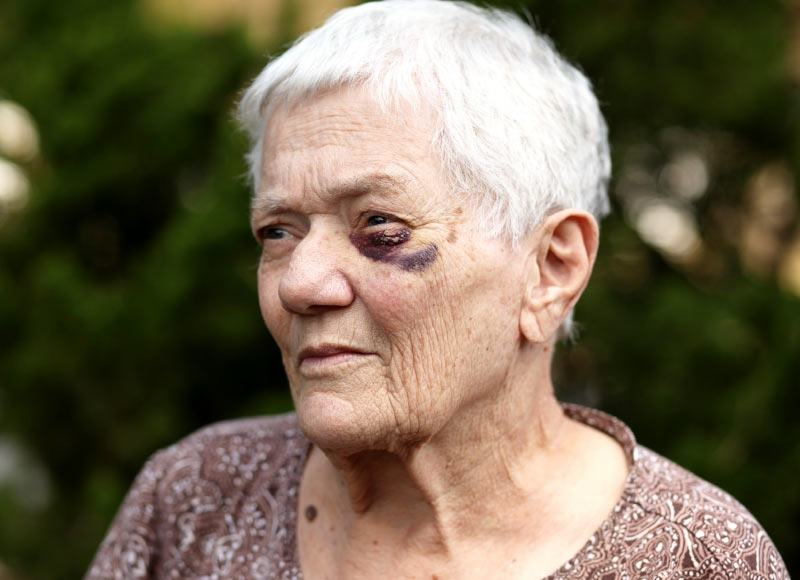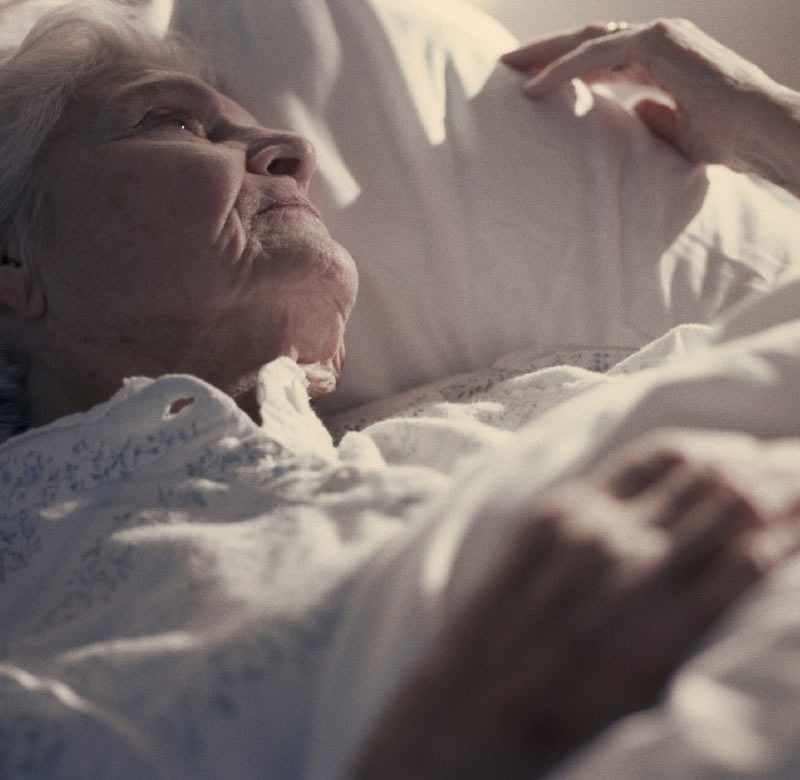Elder Abuse Comes in Different Forms.
In order to effectively identify and report Elder Abuse, it’s important to understand what elder abuse consists of and what the signs of elder abuse are so you know how identify its various forms.

Physical Abuse
In Wisconsin, physical abuse is considered any intentional or reckless infliction of physical pain or injury, illness, or any impairment of physical condition.
If you or someone you know is showing any of the following signs or symptoms, they may be a victim of Physical Elder Abuse:
- Bruises, welts, lacerations, or other marks or signs of being restrained
- Bone or head fractures
- Open wounds; untreated injuries
- Sprains, dislocations, internal injuries
- Broken eyeglasses, canes, or other physical signs of punishment
- Medication overdose or under-use of prescribed medications
- Sudden changes in mood or behavior
- A past instance of being mistreated or physically abused



Emotional Abuse
In Wisconsin, emotional abuse is considered any language or behavior that serves no legitimate purpose and is intended to intimidate, humiliate, threaten, frighten, or otherwise harass the individual to whom the conduct or language is directed.
If you or someone you know is showing any of the following signs or symptoms, they may be a victim of Emotional Elder Abuse:
- Easily and visibly upset or agitated
- Loss of interest in things normally enjoyed
- Suddenly feeling unusually withdrawn from normal life
- Unusual dementia-like behavior such as sucking, biting, rocking
- A past instance of being verbally or emotionally abused
- A past instance of being mistreated or physically abused

Financial Abuse
In Wisconsin, financial abuse can be defined as:
- Obtaining an individual’s money or property by deceiving or enticing the individual
- Forcing, compelling, or coercing an individual to give, sell at less than fair market value, or in other ways transfer money or property against their will without informed consent
- Theft
- Substantial failure or neglect of a fiscal agent to fulfill his or her responsibilities
- Unauthorized use of personal identifying information or documents
- Forgery or financial transaction card crimes
If you or someone you know is showing any of the following signs or symptoms, they may be a victim of Emotional Elder Abuse:
- Sudden changes in bank accounts or large withdrawals, especially made by a caregiver or another individual
- New names added to a bank account
- Unexplained disappearance of money or other valuables
- Delinquent bills despite having adequate funds
- Forged signature on any financial paperwork



Sexual Abuse
In Wisconsin, sexual abuse is considered sexual contact or intercourse with another person without consent (a violation of criminal assault law), which may include unwanted touching, forced nudity, or any sexually explicit photographing.
If you or someone you know is showing any of the following signs or symptoms, they may be a victim of Sexual Elder Abuse:
- Bruises near genital area or breasts
- Venereal disease or genital infections, often unexplained
- Vaginal or anal bleeding, often unexplained or unnoticed
- Garments that are torn, stained or bloody
- A past instance of sexual abuse or rape

Neglect
In Wisconsin, neglect is considered the failure of a caregiver, as evidenced by an act, omission, or course of conduct, to endeavor to secure or maintain adequate care, services, or supervision for an individual, including food, clothing, shelter, or physical or mental health care, and creating significant risk or danger to the individual’s physical or mental health.
If you or someone you know is showing any of the following signs or symptoms, they may be a victim of neglect:
- Obvious dehydration and/or malnutrition
- Worsening bedsores or poor personal hygiene
- Health concerns being untreated
- Hazardous or unsafe living conditions (such as no electricity, heat, running water)
- Dirt, fleas, soiled bedding, lack of proper clothing, or any other unsanitary living conditions
- A past instance of being mistreated or neglected in any way



Self-Neglect
In Wisconsin, self-neglect is considered a significant danger to an individual’s physical or mental health because the individual is responsible for his or her own care but fails to obtain adequate care, including food, shelter, clothing, or medical or dental care.
If you or someone you know is showing any of the following signs or symptoms, they may be a victim of self-neglect:
- Obvious dehydration and/or malnutrition
- Worsening bedsores or poor personal hygiene
- Health concerns being untreated
- Unsafe or unsanitary living conditions
- Inadequate clothing, lack of necessary eyeglasses, hearing aids, dentures, walking assistance, or other medical aids
- Homelessness
Other Forms of Elder Abuse
In Wisconsin, treatment without consent and unreasonable confinement or restraint are also considered forms of abuse.
TREATMENT WITHOUT CONSENT is considered the administration of medication or the performance of psychosurgery, electroconvulsive therapy, or experimental research on an individual who has not provided informed consent, with the knowledge that no lawful authority exists for the administration or performance.
UNREASONABLE CONFINEMENT OR RESTRAINT is considered the intentional and unnecessary confinement of an individual in a locked room, involuntary separation from his or her living area, use of physical restraints, or the provision of unnecessary or excessive medication. (Note: This does not include the use of these methods or devices if they conform with state and federal standards governing confinement and restraint.)
Click here to leave this site, or press ESC on your keyboard.
